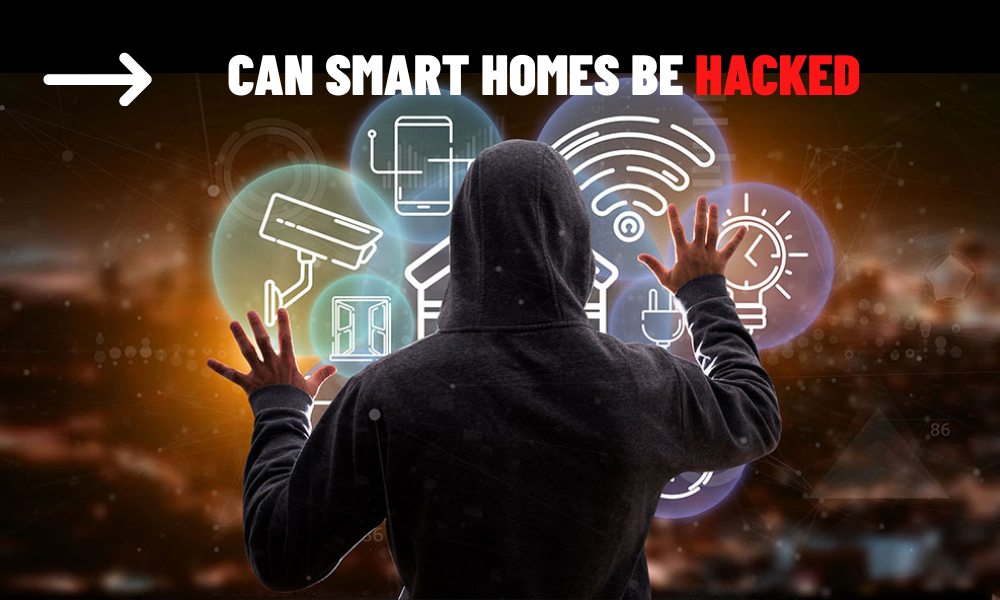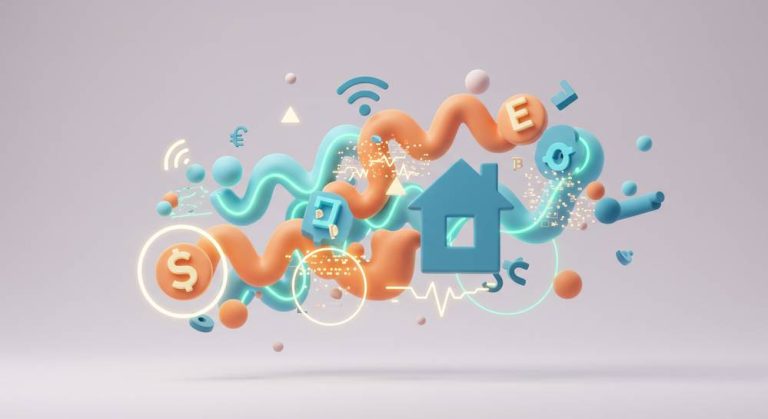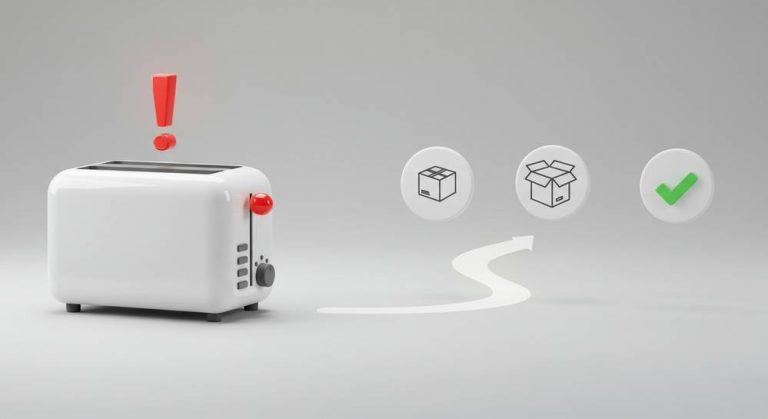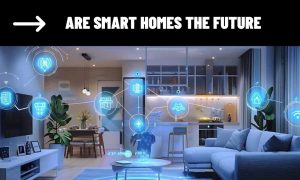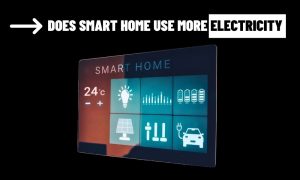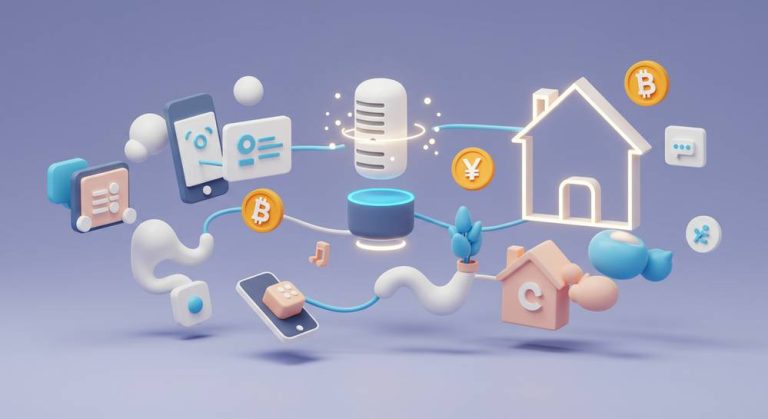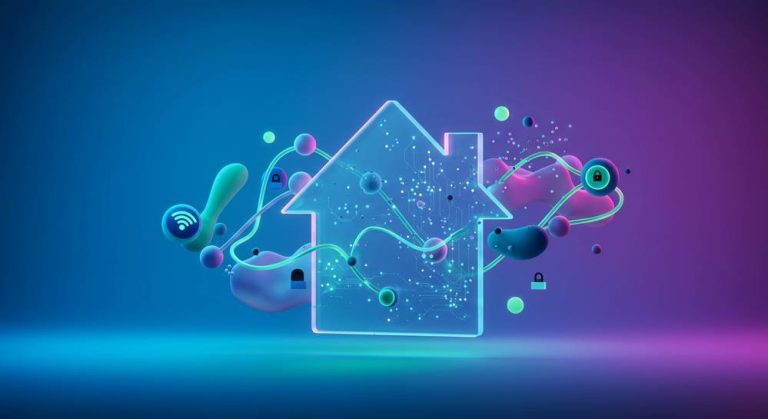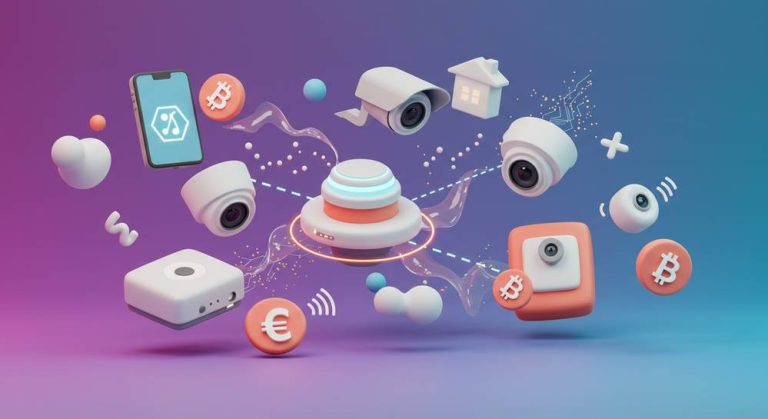As the adoption of smart home technology continues to rise, homeowners are becoming more accustomed to the idea of controlling their homes with just a voice command or a tap on their phones. From smart thermostats and lights to home security systems and appliances, the benefits of automation and convenience are undeniable. But with the increased connectivity of everyday devices, a critical question arises: Are smart homes vulnerable to hacking?
Like any device or system that connects to the internet, smart home technologies come with their own set of security risks. Hackers can exploit vulnerabilities in your smart devices to gain access to your network or even your personal data. In this article, we’ll explore the potential security risks of smart homes, how hackers target these devices, and provide practical tips to ensure your home stays protected.
Understanding the Risks of Smart Home Security
The key appeal of a smart home is the convenience that comes with interconnected devices. However, this interconnectivity also presents certain risks. Here’s how hackers can exploit vulnerabilities in your smart home systems:
1. Weak Passwords and Default Settings
Many people still use weak or default passwords for their smart home devices. When you set up new devices like smart lights, doorbell cameras, or smart speakers, they often come with default usernames and passwords. If these are not changed, they become easy targets for cybercriminals.
Some users also create simple passwords that are easy to guess, or worse, use the same password across multiple devices. This makes it easier for hackers to access your devices if they have obtained your credentials from other sources.
2. Unencrypted Data Transmission
Many smart home devices send data between your smartphone and the device itself. If this data transmission is not encrypted, it can be intercepted by hackers. For example, personal data, video footage from security cameras, or even voice commands from a smart speaker could be vulnerable to eavesdropping.
If hackers manage to intercept unencrypted data, they could gain access to your private information, compromising your security and privacy.
3. Poorly Secured Wi-Fi Network
Smart home devices rely heavily on your home Wi-Fi network to communicate. If your Wi-Fi is unsecured, hackers can easily infiltrate your network and access any connected devices. Even a guest Wi-Fi network with minimal protection could be a weak point in your home’s security system.
Inadequately secured networks make it much easier for cybercriminals to launch attacks such as man-in-the-middle attacks, where they intercept data being sent between your devices and network.
4. Outdated Software and Firmware
Smart home devices, like all technology, require regular software updates to address vulnerabilities. Many manufacturers release updates to fix security flaws, but if you neglect these updates, you risk leaving your devices exposed to hackers.
If your smart thermostat, camera, or security system isn’t running the latest version of its firmware, hackers can exploit known security weaknesses to gain control over the device.
5. Vulnerabilities in the Cloud
Many smart home devices store data in the cloud, allowing you to access your devices remotely. For example, security camera footage is often uploaded to the cloud so you can review it from anywhere. However, if the cloud storage or the associated app isn’t adequately secured, this data can be vulnerable to hacking.
Insecure cloud services may expose sensitive information, including video surveillance footage or personal data from your devices, leaving you open to privacy breaches.
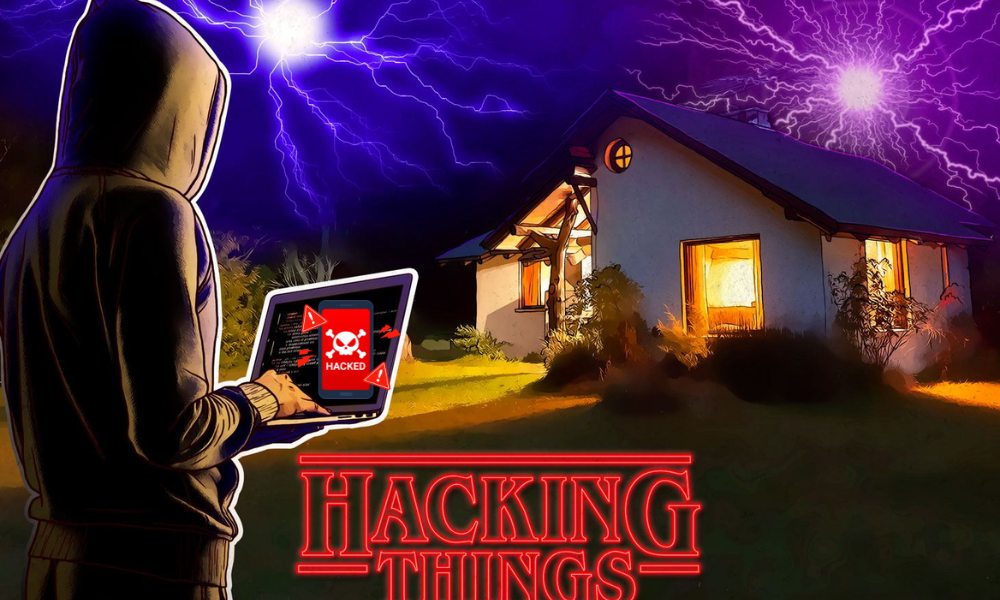
What Could Happen If Your Smart Home Is Hacked?
If your smart home is compromised, the consequences can be severe. Hackers could gain control over your devices and potentially use them for malicious purposes. Here are some of the risks involved:
1. Privacy Violations
Hackers may gain access to devices like smart cameras or smart speakers, which can record and transmit video or audio. This could allow hackers to spy on you and your family in real-time, violating your privacy. Sensitive conversations or footage of your home could be stolen or even sold on the dark web.
Additionally, many smart devices collect and store personal data, including location information. If this data is accessed by hackers, they could track your daily movements or gain insights into your routines.
2. Unauthorized Access to Your Home
A hacker could potentially gain control of your smart locks or doorbell cameras, allowing them to unlock doors and enter your home without your permission. If your home security system is compromised, it may be disabled, leaving you vulnerable to theft or worse.
Hackers could also trigger false alarms or disable motion sensors, disrupting the functionality of your security system.
3. Loss of Control Over Smart Devices
If hackers gain control of your connected devices, they could manipulate them at will. This includes adjusting smart thermostats, turning lights on and off, or overriding your home automation routines. While this may seem more like an inconvenience than a serious threat, hackers could use this to confuse you or hide their presence.
In more extreme cases, hackers might disrupt essential devices, such as a smart refrigerator, or even cause damage by tampering with your smart home appliances.
4. Financial Losses
A compromised smart home could also lead to financial losses. If hackers gain control of devices that are linked to your bank accounts, such as smart payment systems or automated financial transactions, they could make fraudulent purchases or transfer money without your knowledge.
In addition, hackers could use your smart home to launch attacks on other networks, potentially leading to data breaches or the theft of financial information.
How to Secure Your Smart Home from Hackers
While the risks of hacking are real, you can take several steps to significantly improve the security of your smart home. By following these tips, you can protect your devices, data, and privacy from cybercriminals.
1. Use Strong, Unique Passwords
Always change the default passwords on your devices and create strong, unique passwords for each smart home device and account. Avoid using easily guessable passwords or reusing passwords across multiple platforms.
For added protection, enable two-factor authentication (2FA) on devices and accounts that support it. This adds an extra layer of security by requiring a secondary verification (like a code sent to your phone) in addition to your password.
2. Encrypt Your Data
Choose smart devices that offer end-to-end encryption for data transmissions. Ensure that the data between your devices and their corresponding apps is encrypted to prevent hackers from intercepting your personal information. This is especially important for devices like security cameras and voice assistants, which collect sensitive data.
3. Secure Your Wi-Fi Network
Your Wi-Fi network is the backbone of your smart home. Make sure your Wi-Fi is secured with a strong password and WPA3 encryption. Regularly change your Wi-Fi password, and ensure that any connected devices are authenticated before they can access your network.
Consider creating a separate network for your smart devices, isolating them from other devices like your computer or phone. This will reduce the risk of a compromised device gaining access to your personal data.
4. Keep Devices Updated
Regularly check for software updates for all your smart devices. Most manufacturers release security patches to fix vulnerabilities, and it’s crucial to install these updates as soon as they are available. Enable automatic updates if the option is available, to ensure that your devices are always running the latest security patches.
5. Monitor Device Activity and Settings
Many smart devices allow you to track their activity through apps. Regularly monitor the devices in your home to detect any unusual behavior. For example, if your smart lock is suddenly being unlocked at odd hours, or your security cameras are turning on without your command, this could be a sign that your system has been compromised.
6. Be Cautious of Phishing and Social Engineering Attacks
Phishing attacks and social engineering tactics are often used by hackers to gain access to personal information. Be cautious of unsolicited emails, texts, or phone calls that ask for personal or login information. Always verify the source of the communication before clicking on links or providing sensitive data.
Conclusion
While smart homes offer unmatched convenience and control, they also introduce new security challenges. Hacking of smart home devices is a real threat, but with the right precautions, you can minimize the risks. By using strong passwords, securing your Wi-Fi network, keeping devices updated, and staying vigilant for phishing attempts, you can safeguard your connected home.
As smart home technology continues to evolve, security will improve, but the responsibility for protecting your home will always be in your hands. With proper measures in place, you can enjoy the benefits of a smart home without compromising your privacy and security.
